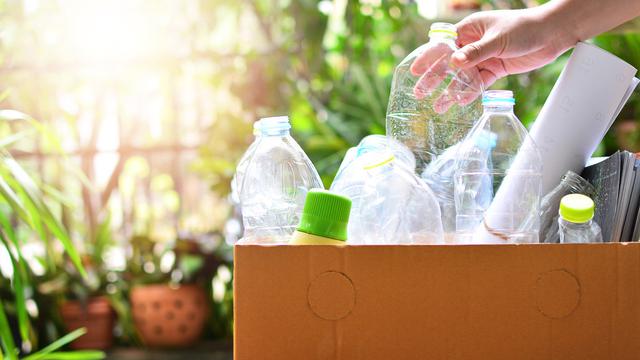One problem that has not been solved in Indonesia is the problem of plastic waste. The latest data from the Ministry of Environment (2019) showed that the Indonesian people produce 187.2 million tons of plastic waste annually. One of the main problems why it continues to happen is due to the lack of public awareness regarding the dangers of plastic waste to the environment. This is in line with data submitted by Indonesian Retailers Association (APRINDO) in one year reaching 10.95 million pieces of plastic bag waste. The amount is equivalent to 65.7 hectares of vacant land.
The lack of awareness of the people of Indonesia on the dangers of plastic waste is an obstacle to reduce this. Public awareness on the dangers of plastic waste can be influenced by the level of public knowledge. The dangers prevention of plastic waste that can be done by the community is simple, for example, the replacement of plastic packaging with materials that are more environmentally friendly, for example the use of tumbler bottles for drinking water in order to reduce waste plastic bottles.
In this regard, we try to do a case study research in the scope of students in Faculty of Science and Technology, Universitas Airlangga. The FST students were chosen because they have more knowledge related on the dangers of plastic waste compared to ordinary people. But does that knowledge reflected into their habits to reduce the use of plastic waste in their daily lives? Especially related to the use of plastic waste in beverage bottles.
Our results showed that 58% of FST students still often buy plastic beverage packaging compared to using a “tumbler”. Students buy about 1-2 drinks average in plastic packages per day. Even though they already know that the plastic is dangerous for the environment. Moreover, what is interesting from our research showed that actually 90% of students have shown a desire to reduce the consumption of plastic bottles. However, this desire has not shown through real action in reducing the use of plastic bottles.
The results of this study indicated that at the level of FST students who have more knowledge about the dangers of plastic bottles for the environment cannot practice it in real life. Students are still reluctant to make real efforts to reduce plastic bottle waste, which is demonstrated through the many plastic bottles purchased by students. What we hope for ordinary people to voluntarily reduce plastic will certainly be much tougher.
For this reason, the education movement about the dangers posed by plastic bottles and the importance of reducing the use of plastic bottles still needs to be improved for students to minimize the impact of plastic bottles on health and the environment. The application of environmental tax for plastic bottles must be increased immediately. Why? Because with tax instruments, we can create negative instruments for the people and they will voluntarily reduce their plastic consumption. (*)
Author: Gigih Prihantono
The full article can be accessed through the following link:
https://www.ijicc.net/images/vol10iss12/101228_Jariyah_2020_E_R.pdf





